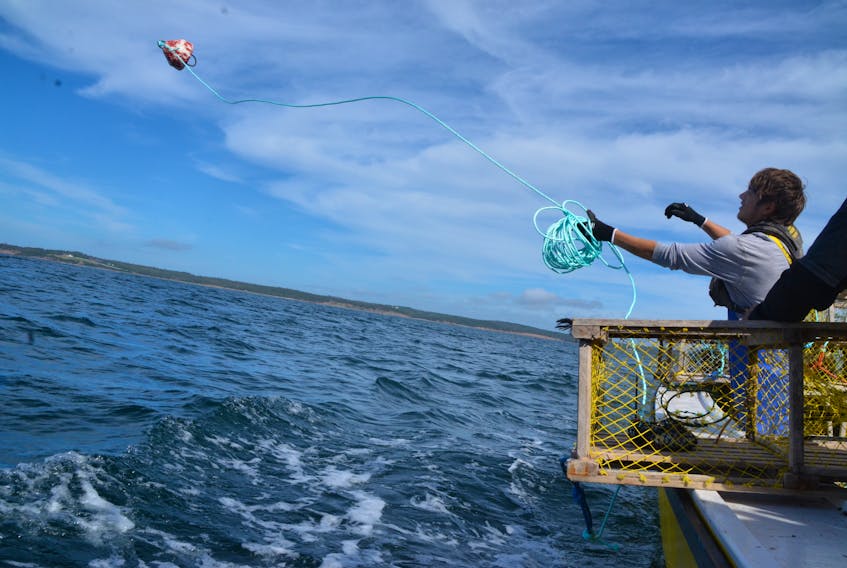First Nations are fighting for fishing rights they have had for hundreds of years. But once again the Nova Scotia government and private fishers are inappropriately challenging the "legal authority" of the Mi'kmaq to exercise and regulate their fishing rights.
This is happening even after Canada's Supreme Court in 1997 confirmed that these rights were already embedded in the Peace and Friendship treaties of the 18th century.
Yet governments and private fishers refuse to acknowledge this fact, even though these rights are recognized under national and international law. Canadian law includes the treaties signed by successive governments. They are affirmed by Canada's Constitution in section 35. To ignore their intent is a serious omission.
For hundreds of years, L'nuk fished under their own rules, regulating the fishery and determining what their livelihood required. In fact, Mi'kmaq fishers were excluded from Canada's fishing industry altogether for over 200 years. The recent imposition of a "moderate livelihood" standard on Mi'kmaq fishers is a slap in the face of a First Nation that could freely exercise that right long before Nova Scotia became a province.
All through that time there were no rules about "moderate or excessive" livelihood restrictions. Any overfishing that was done involved the non-aboriginal fishers operating under Canadian law.
NEFARIOUS REASONS AT PLAY
So why is there a continuing intervention in the ability of L'nuk to fish uninterrupted by non-indigenous governments and their allies? Other more nefarious reasons are at play: If we look carefully we can see how the ugly and historical presence of racism is entrenched in Nova Scotia and its fisheries.
You could not find a more convincing narrative that racism has infiltrated the province's fishery. The Mi'kmaq fished their livelihood without restrictions imposed by any Canadian government. The British government acknowledged these rights in treaties that are still part of Canada's legal regime, requiring us to honour.
The incidents that involve directly attacking First Nations, their land, their houses, property and individuals are glaringly racist under any definition. Yet they are reported by the media as mere skirmishes and disputes. The level of violence being used comprises scary tactics that penetrate every Mi'kmaq community at every level. Think of being a child or young adult watching all of this. Does this lay the groundwork of reconciliation for Canadians and indigenous peoples?
This is not just vandalism or a typical labour/management dispute. When an angry mob of some 200 people attack a lobster storage pound, barricading Mi'kmaq fishers inside, there's a lot more going on than just a mere skirmish. The chief of the Sipekne'katik community is physically attacked and assaulted for no legitimate reason. Destroying Mi'kmaq property by fire and throwing their catch of lobster on the ground is hateful behaviour intended to demoralize Mi'kmaq communities.
DELIBERATE ACTS?
The RCMP stand by and observe the behaviour, laying only a few minor charges. What should we call pelting a Mi'kmaq storage building with rocks then destroying it by fire? What about destroying boats, traps and equipment as well as harassing the people who buy lobster from Mi'kmaq fishers. Is that a deliberate act to deny the fishing rights of a First Nation community?
It is reminiscent of the violent racist outbursts that took place in Alabama and Mississippi in the 60s and 70s. I saw similar behaviour when I lived in Kentucky. It’s racism writ large! The local media downplay the severity of what is happening, creating a kind of permissive immunity to the uncomfortable reality of these facts. Racism has a way of operating below public visibility and hiding in plain view without consequence.
Government tactics are morally and legally questionable, if not reprehensible. They need to be called out as blatant examples of embedded racism and a violation of the Truth and Reconciliation Commission (TRC) guidelines. Are these tactics what the authors of the TRC had in mind when they advocated reconciliation? Not in my view!
The Federal Fisheries Minister, Bernadette Jordon, needs to review her belief that "conservation" is the dominant issue. In fact, her attitude contributes to the problem at hand. The Prime Minister needs to shuffle at least one portfolio asap.
Jim Guy is professor emeritus of political science at Cape Breton University.








